Tofu Guide: Nutrition, 6 Health Benefits, Types, And Recipes
Revitalize your meals with the plant-powered potential of tofu and revel in a wholesome experience
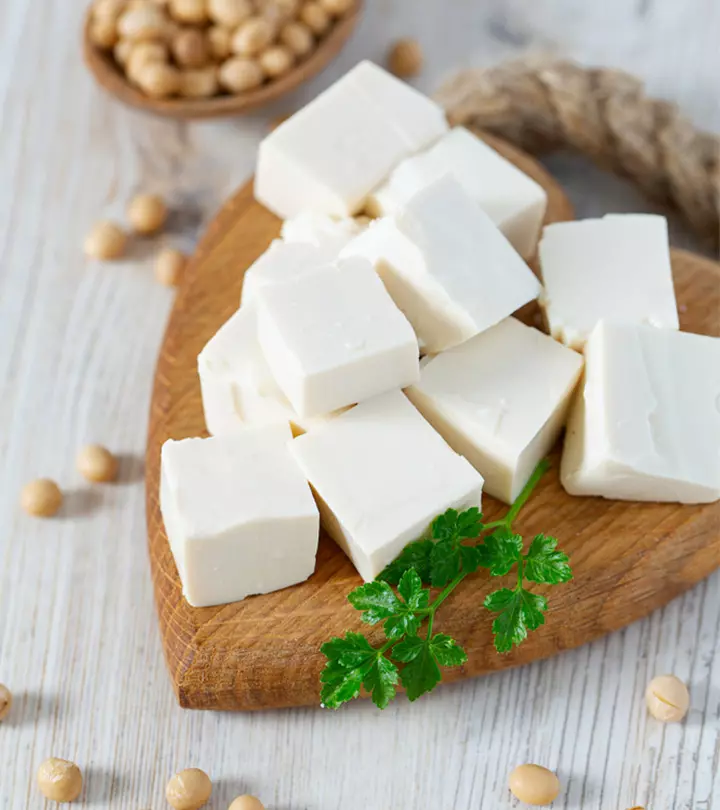
Image: Shutterstock
Tofu is a nutrient-dense meat substitute with a mild flavor. It is derived from soybean curd, and it goes well with many dishes. Tofu benefits your health in many ways. It contains several vitamins and minerals, proteins, and amino acids. Tofu intake may help reduce the risk of heart disease, type 2 diabetes, and certain cancers. In addition, it is a great food source for vegans and those with lactose sensitivity. However, consuming too much tofu may be associated with some side effects.
This article explores the potential health benefits, nutrition profile, varieties, and possible side effects of tofu. We also discuss some easy and delicious tofu recipes. Keep reading.
In This Article
What Is Tofu?
Tofu is the processed soybean curd that resembles cottage cheese. It can be sliced into different shapes and cooked differently. Tofu is available in silken, soft, firm, or extra-firm forms. The soft variety is usually seasoned and marinated to complement any dish. It can also be flavored with ginger, onion, or spices. Tofu is becoming an increasingly popular source of protein in Chinese, Japanese, Korean, and South East Asian cuisines. It is rumored that a Chinese cook had accidentally mixed fresh soy milk with nigari, which eventually led to the discovery of tofu.
Tofu has several anti-inflammatory and antioxidant phytochemicals (plant compounds). It also contains all the nine essential amino acids, which your body cannot produce on its own.
2,356 people from Great Britain shared their views on tofu in an online survey conducted by YouGov in October 2025. As per the responses, 36% of them did not like it, 24% liked it, 33% had never tried tofu, and 7% did not know it.
What are the key nutrients that you can find in tofu? We have listed them in the following section. Keep reading.
Key Takeaways
- Tofu lends itself to Asian recipes due to its neutral flavor and enriching qualities.
- It is a great meat alternative for vegans and those with lactose intolerance.
- Tofu is full of anti-inflammatory and antioxidant compounds, along with a variety of vitamins, minerals, proteins, and amino acids.
- It may help reduce the risks of cardiovascular disease, prostate cancer, and diabetes, among other benefits.
Nutrition Facts Of Tofu
100 grams of tofu contain the following nutrients (1):
| Calories | 94 kcal |
| Protein | 9.41g |
| Fat | 5.29g |
| Carbohydrate | 2.35g |
| Fiber | 2.4g |
| Calcium | 176 mg |
These essential nutrients make tofu a healthy food. But what health benefits can you expect from tofu? Continue reading to know them.
Health Benefits Of Tofu
1. May Reduce The Risk Of Cardiovascular Disease
Tofu contains saponins (plant compounds) that may reduce blood cholesterol and increase bile acid elimination. Both these functions, in turn, help lower heart disease risk (2). Tofu’s isoflavone content may also help lower the markers of cardiovascular disease.
Research links a higher isoflavone and tofu intake with a moderately lower risk of coronary heart disease (3). This benefit of tofu is more pronounced in young women or postmenopausal women with no hormonal treatment.
2. May Reduce The Risk Of Cancers
Researchers linked the increased intake of soy foods with a reduced risk of breast cancer (4). Tofu isoflavones may help reduce the levels of prostate-specific antigens, thereby decreasing prostate cancer risk (5). Moreover, this effect was more marked in premenopausal women (6). Isoflavones, mainly found in soy, have also been shown to inhibit the proliferation of ovarian cancer cells (7).
3. May Promote Bone Health
Studies suggest that regular intake of soy foods may help improve bone mineral density. A woman’s bone mineral density decreases significantly after menopause. Tofu is a good source of plant estrogens that can make up for that loss. However, soy food intake did not have a similar effect in premenopausal women. More studies are warranted to understand this benefit of tofu.
4. May Reduce The Risk Of Age-Related Brain Diseases
Studies indicate that phytoestrogens in tofu may prevent cognitive decline and lower the risk of Alzheimer’s disease progression. Preclinical studies indicate that soy isoflavones (ISFs) play a significant role in the pathologies of Alzheimer’s. As a result, ISFs may help reduce inflammation and oxidative stress and alleviate cognitive impairment. Neuroprotective effects of phytoestrogens may also help protect the aging brain and improve cognitive function. However, further studies are warranted to understand this benefit of tofu intake (8), (9).
5. May Reduce Risk Of Diabetes
Tofu is low in fat and calories, and can be an ideal food choice for people with diabetes. Recent studies suggest that soy food intake may boost blood sugar control (10). Soy protein-containing isoflavones are linked with a lower risk of type 2 diabetes (11). People with type 2 diabetes and kidney disease excrete a large amount of protein through urine (12).
6. May Help Treat Menopausal Symptoms
Phytoestrogens like isoflavones and coumestans are plant substances that are structurally and functionally similar to estrogens. These plant compounds have gained popularity as an alternative to hormonal therapy in treating menopausal symptoms (13). Besides, studies suggest that isoflavones may reduce hot flashes and loss of lumbar spine BMD, and improve blood sugar control (14).
These compounds may also show beneficial effects on systolic blood pressure during early menopause (15).
Want to enhance the flavor of your dishes using tofu? Well, you need to follow a few simple tips while cooking it.
Tips To Follow While Using Tofu
- Choose the right type of tofu that suits your recipes.
- Remove the liquid completely after unpacking.
- Cut into small pieces for better cooking.
- Use lemon juice or vinegar while marinating.
- Cook for at least 10 minutes.
- Use flavorful oils like sesame or mustard to enhance the flavor.
- Use non-stick pans while cooking tofu.
- Refrigerate by placing tofu in a plastic or glass container filled with water. You can freeze it in its original packaging for about three months.
 Pro Tip
Pro TipTofu is available in different varieties, although soy is the only base ingredient. Continue reading to know the types of tofu and how they are distinguished.
Types Of Tofu
- Silken Tofu
Silken tofu is usually packaged in aseptic containers and does not need refrigeration. It is made by pureeing the soy curd to a smooth paste. It adds texture and improves consistency in smoothies, salad dressings, desserts, and sauces. You can also use silken tofu to substitute eggs.
- Regular Tofu
It is significantly more popular and also known as bean curd or Chinese-style tofu. The kind of tofu you will find in the refrigerated section of the supermarket is in the containers. There are three types:
- Soft Tofu
Soft tofu has a custard-like texture and can retain its shape when cooked delicately. It can serve as an egg substitute and can be added to soups like miso soup, or baked as a breakfast scramble.
- Medium-Firm Tofu
Medium-firm tofu is suitable for soups, stews, curries, searing, and baking.
- Extra-Firm Tofu
Extra-firm tofu can be an amazing substitute for meat.
Jessica Hylton, a blogger, shares her beloved sweet and sour tofu recipe, a comforting and flavorful take on a classic dish. With a dedication to making her recipes vegan, Jessica’s sweet and sour tofu has become her go-to comfort meal, cherished by both her and her readers. She mentions, “After years of making tofu, I’m proud to say we know how to make it perfectly crispy (i).”
 Quick Tip
Quick TipThough tofu is highly nutritious and can be a healthy alternative to meat, it may have some potential risks. Continue reading to know them.
Possible Risks Of Tofu Intake
1. May Interact With Medications
Anecdotally, tofu intake is linked with a few drug interactions. Avoid eating tofu if you take medicines called MAOIs (monoamine oxidase inhibitors), which are antidepressants. This soy milk product contains tyramine amino acid that helps balance blood sugar levels. However, MAOIs block the enzymes that break tyramine down (16). Tofu and some antibiotics may also interact and affect beneficial bacteria.
2. Effects Of Processing
Anecdotal evidence suggests that there may be a tumor-growth risk depending on how an isoflavone-containing product is processed. The products made from tofu-like sausages may contain additives like sodium and flavorings that counteract their health benefits.
Tofu is majorly popularized for its protein content. How much protein does it contain? What is the recommended intake? We answer these questions in the next section.
3. Possible Effects For People With Thyroid Issues
Some believe that soy products may compromise thyroid gland function and interfere with the absorption of the synthetic thyroid hormone. While research suggests that soy may not be harmful for those with thyroid issues, caution is still recommended (17). Consult your doctor for more information.
How Much Protein Does Tofu Contain?
Tofu contains nine amino acids, forming a complete protein. Half a cup serving of tofu (80 grams) contains 8 grams of protein (1). Generally, men and women should consume 55 to 57 grams and 47 to 48 grams of protein per day, respectively (18).
Consuming tofu is believed to induce weight loss. But what does science say?
Is Tofu Healthy For Weight Loss?
Consumption of tofu is generally associated with a lower body mass index and a reduced risk of obesity (19). Being low in calories and high in dietary fiber, tofu makes you feel full for longer. As a result, you eat less and may lose weight over time. Besides, tofu contains isoflavones that contribute to a lower body mass index. However, more research is warranted to understand this benefit of tofu.
Both tofu and meat are rich sources of protein. But there is always a debate over which of the two is healthier.
Is Tofu Healthier Than Meat?
The only difference between tofu and meat protein is that you need to consume more tofu to meet the recommended dietary protein levels. If you consume 150 grams of lean meat, you need 290 grams of tofu to obtain the same amount of protein. Moreover, tofu provides an equal quantity of protein, carbohydrates, fat, and fiber, which is not the case with meat. Hence, tofu could be considered healthier than meat (though this is often debated).
So, what are you waiting for? Explore some delicious tofu recipes in the next section.
Easy Tofu Recipes
1. Tofu Stir-Fry
Ingredients:
- 1 cup of firm tofu, cubed
- 1 cup of mixed vegetables
- 2 tablespoons of soy sauce
- 1 tablespoon sesame oil
- 1 clove of garlic, minced
How To Prepare:
- Sauté tofu and vegetables in sesame oil until golden.
- Add minced garlic and stir.
- Pour soy sauce, cook briefly, and serve.
2. Tofu Berry Parfait
Ingredients:
- 1 cup of silken tofu
- 1 cup of mixed berries
- 2 tablespoons of honey
- ¼ cup of granola
How To Prepare:
- Blend tofu and honey until smooth.
- Layer the tofu mixture, berries, and granola in a glass.
- Repeat layers and top with berries.
Tofu is a delicious vegan alternative to cheese. It is obtained from soy milk and packed with proteins, fats, vitamins, and minerals. Thus tofu benefits share similarities with soy milk benefits, and range from reducing the risk of cardiovascular disorders to promoting bone health. It is low in calories and may help control blood sugar levels. It may help manage diabetes and weight loss as well. This creamy food has a mild flavor that gels well with any savory dish. You can add tofu to your salads and other savory dishes. However, excessive consumption may interfere with blood-thinning medications or trigger allergies due to soy content. Hence, limit its consumption and seek medical advice if you experience any side effects.
Frequently Asked Questions
Is it OK to eat tofu every day?
Yes, but in moderation. Tofu contains beneficial compounds that may help support good health.
Which is healthier: chicken or tofu?
Chicken. Though it is higher in calories, it has more proteins and fewer fats than tofu (1), (20).
Which is healthier: eggs or tofu?
Eggs as they have a higher protein content than tofu (1), (21).
Can you eat tofu raw?
Yes. But you should strain out the excess fluid from the package before consuming it.
What’s better: tofu or salmon?
Salmon. Salmon has more proteins and other beneficial nutrients than tofu (1), (22).
Is tofu healthier than tuna?
No, tuna is healthier. It has more protein and omega-3 fatty acids than tofu (1), (23).
Unlock the secrets of tofu’s goodness! Discover six amazing benefits of including tofu in your diet with this video. Watch to find out why it’s a nutritional game-changer for everything from heart health to general well-being.
Personal Experience: Source
StyleCraze's articles are interwoven with authentic personal narratives that provide depth and resonance to our content. Below are the sources of the personal accounts referenced in this article.
(i) Sweet and Sour Tofu Recipe (Vegan)https://jessicainthekitchen.com/sweet-sour-tofu-recipe-vegan/
References
Articles on StyleCraze are backed by verified information from peer-reviewed and academic research papers, reputed organizations, research institutions, and medical associations to ensure accuracy and relevance. Read our editorial policy to learn more.
- TOFU
https://fdc.nal.usda.gov/fdc-app.html#/food-details/411177/nutrients - Acceptability and consumption of tofu as a meat alternative among secondary school boarders in Enugu State Nigeria
https://www.ncbi.nlm.nih.gov/pmc/articles/PMC6250531/ - Isoflavone Intake and the Risk of Coronary Heart Disease in US Men and Women: Results From 3 Prospective Cohort Studies
https://pubmed.ncbi.nlm.nih.gov/32200662/ - Dietary intake of soy protein and tofu in association with breast cancer risk based on a case-control study
https://pubmed.ncbi.nlm.nih.gov/18791919/ - Soy and isoflavone consumption in relation to prostate cancer risk in China
https://pubmed.ncbi.nlm.nih.gov/12869409/ - Soy food consumption and risk of prostate cancer: a meta-analysis of observational studies
https://pubmed.ncbi.nlm.nih.gov/19838933/ - Soy and isoflavone intake associated with reduced risk of ovarian cancer in southern Chinese women
https://pubmed.ncbi.nlm.nih.gov/24774066/ - Effects of soy isoflavones on cognitive function: a systematic review and meta-analysis of randomized controlled trials
https://www.ncbi.nlm.nih.gov/pmc/articles/PMC7808187/ - Phytoestrogens and cognitive function: a review
https://pubmed.ncbi.nlm.nih.gov/24486046/ - Soy intake and risk of type 2 diabetes mellitus in Chinese Singaporeans
https://www.ncbi.nlm.nih.gov/pmc/articles/PMC3480546/ - Consumption of soy foods and isoflavones and risk of type 2 diabetes: a pooled analysis of three US cohorts
https://www.ncbi.nlm.nih.gov/pmc/articles/PMC5143190/ - Incidence of proteinuria in type 2 diabetes mellitus in the Pima Indians
https://pubmed.ncbi.nlm.nih.gov/2785225/ - Soy and phytoestrogens: possible side effects
https://www.ncbi.nlm.nih.gov/pmc/articles/PMC4270274/ - Isoflavone Supplements for Menopausal Women: A Systematic Review
https://www.ncbi.nlm.nih.gov/pmc/articles/PMC6893524/ - Isoflavone Supplements for Menopausal Women: A Systematic Review
https://www.ncbi.nlm.nih.gov/pmc/articles/PMC6893524/ - Monoamine Oxidase Inhibitors (MAOI)
https://www.ncbi.nlm.nih.gov/books/NBK539848/ - Effects of soy protein and soybean isoflavones on thyroid function in healthy adults and hypothyroid patients: a review of the relevant literature
https://pubmed.ncbi.nlm.nih.gov/16571087/ - Revised Reference Values for the Intake of Protein
https://www.ncbi.nlm.nih.gov/pmc/articles/PMC6492513/ - Role of Dietary Soy Protein in Obesity
https://www.ncbi.nlm.nih.gov/pmc/articles/PMC1838825/ - [HISTORICAL RECORD]: CHICKEN BREAST
https://fdc.nal.usda.gov/fdc-app.html#/food-details/483874/nutrients - Egg whole cooked hard-boiled
https://fdc.nal.usda.gov/fdc-app.html#/food-details/173424/nutrients - Fish salmon Atlantic farmed cooked dry heat
https://fdc.nal.usda.gov/fdc-app.html#/food-details/175168/nutrients - Tuna, fresh, raw
https://fdc.nal.usda.gov/fdc-app.html#/food-details/1099030/nutrients
Read full bio of Tracy Tredoux
Read full bio of Aparna Mallampalli
Read full bio of Ravi Teja Tadimalla
Read full bio of Payal Karnik






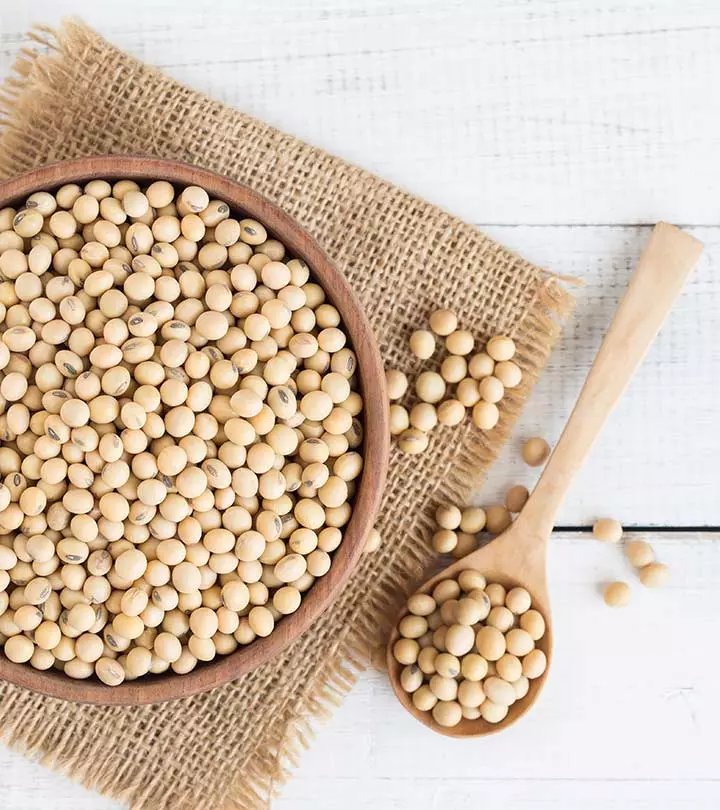
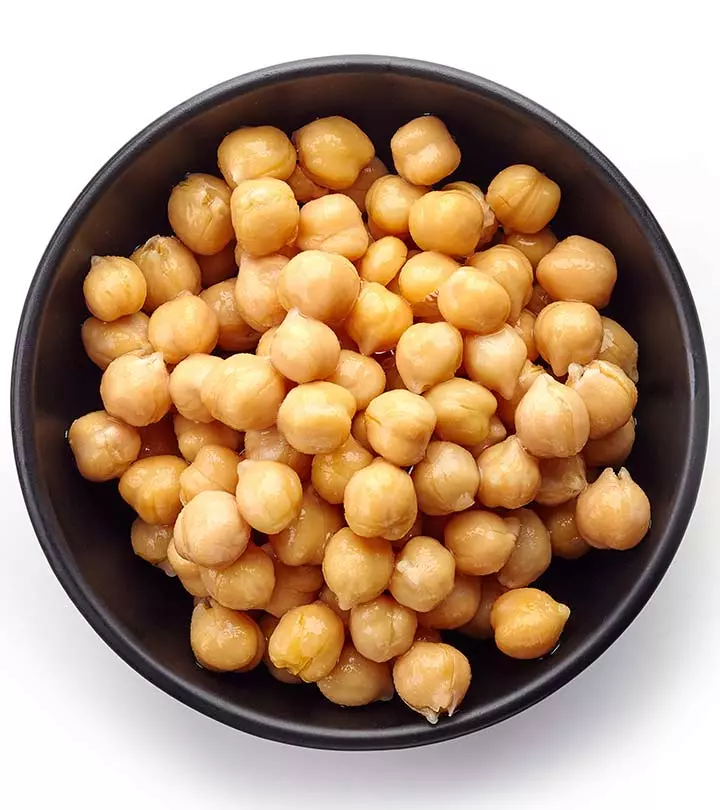

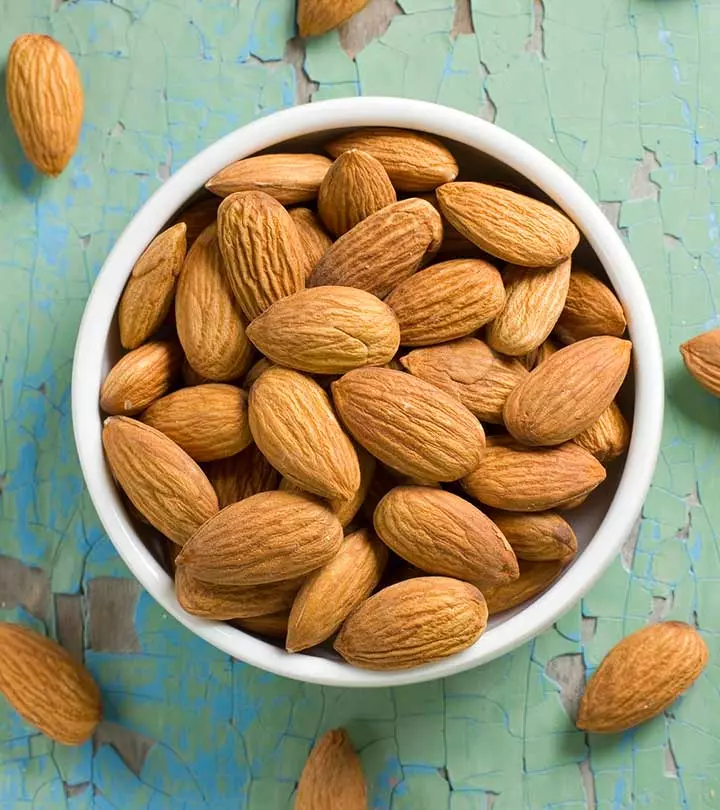
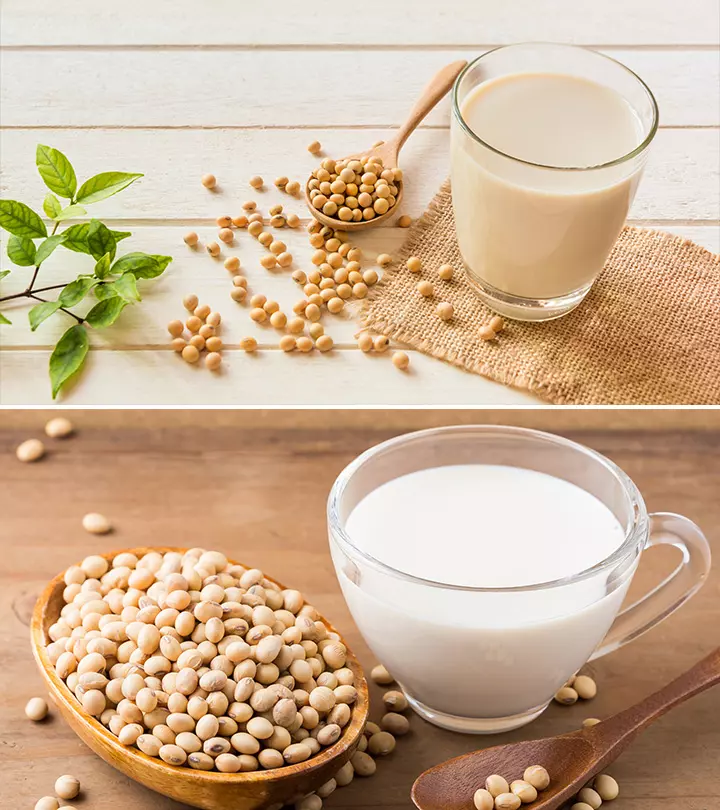
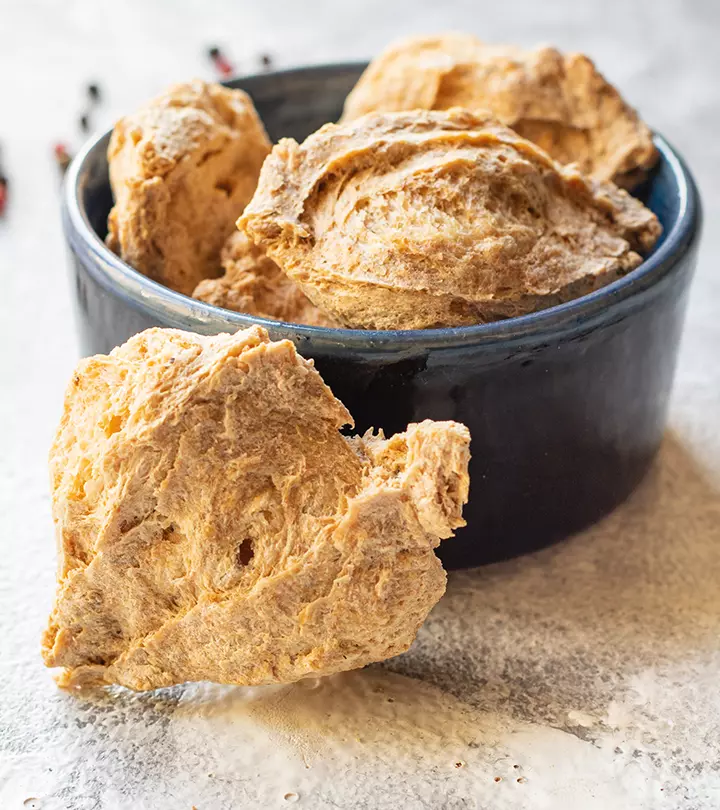


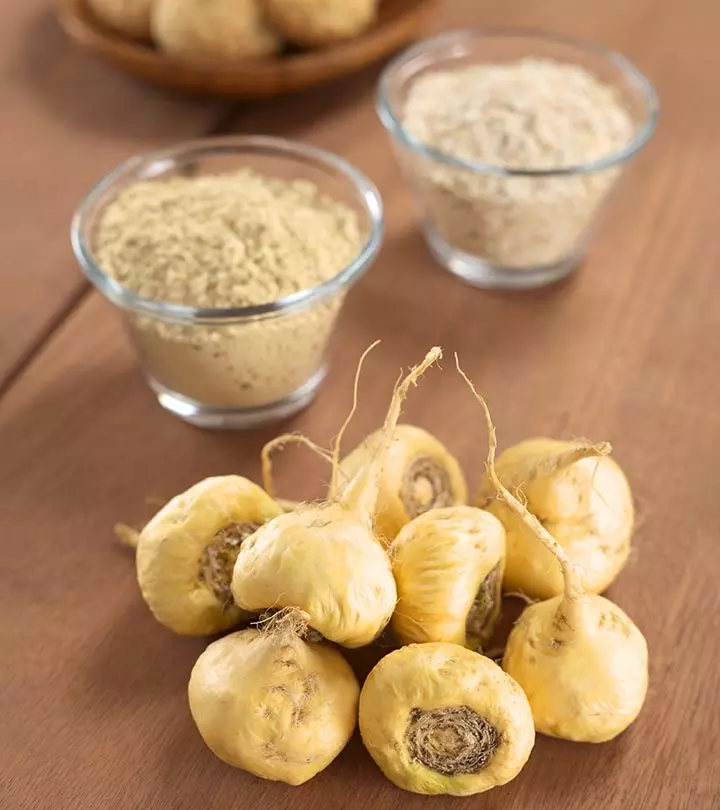
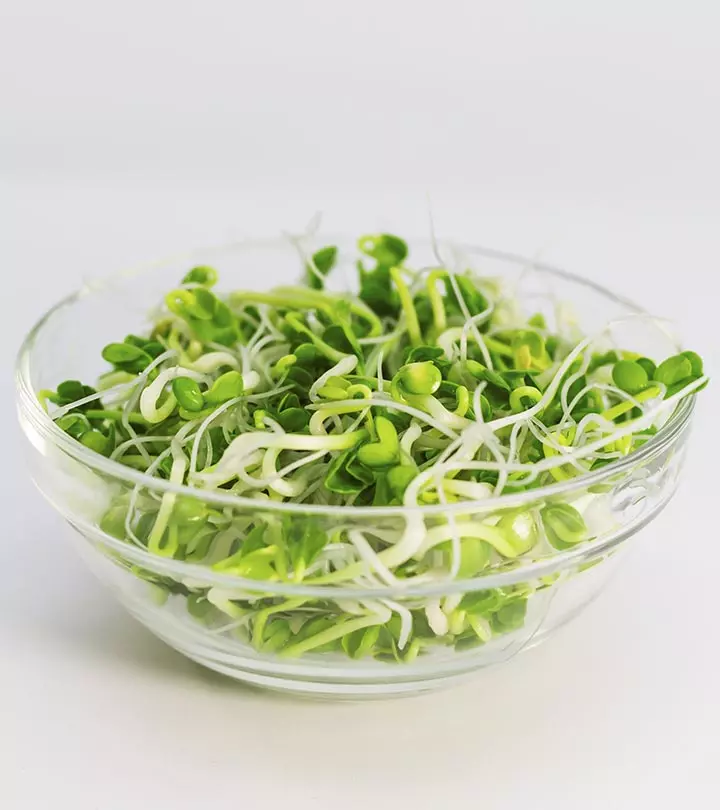

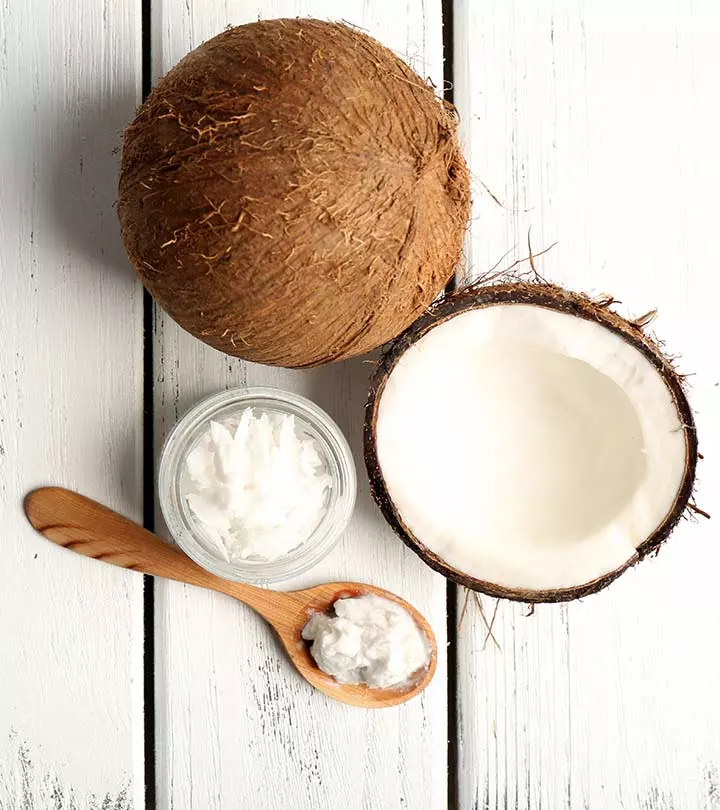


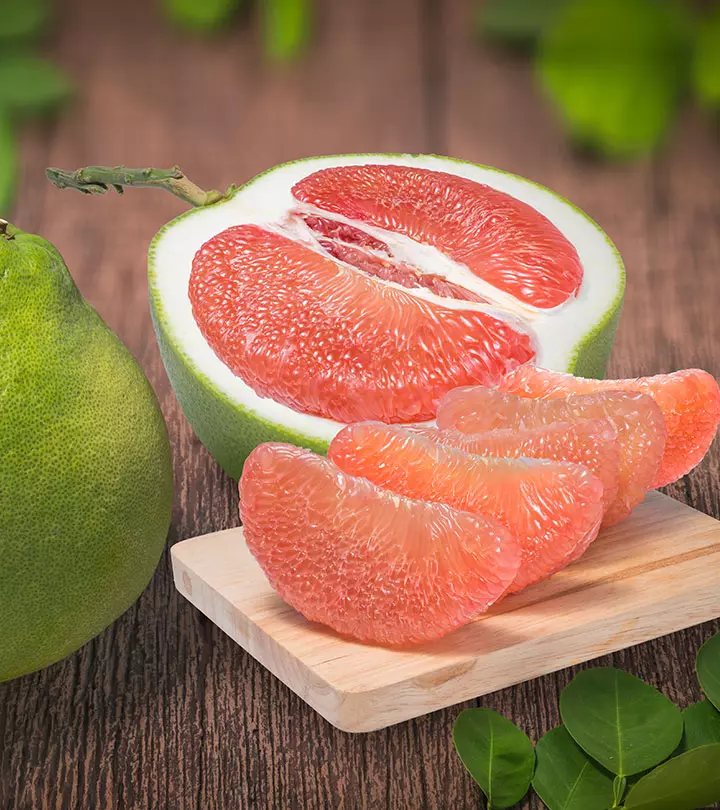

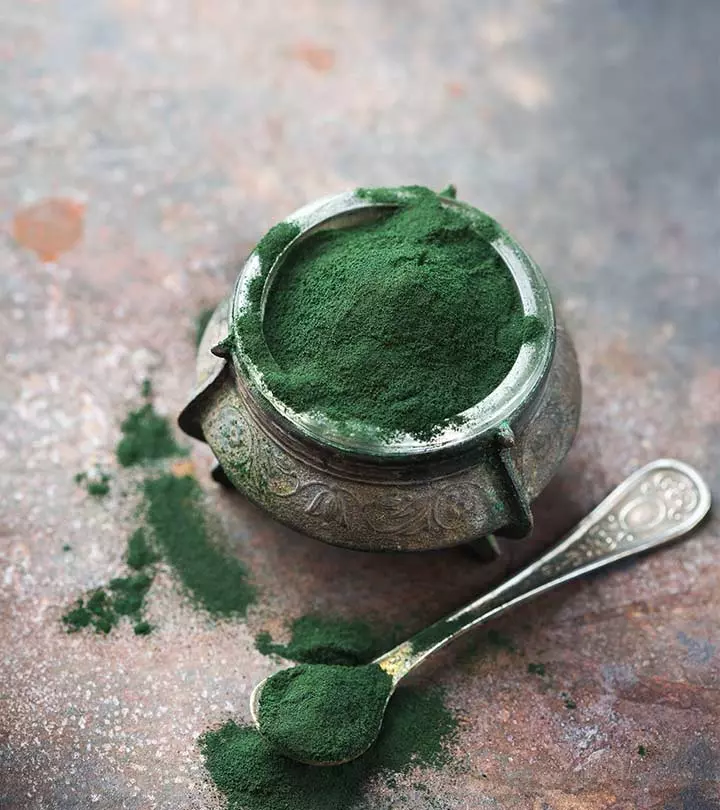



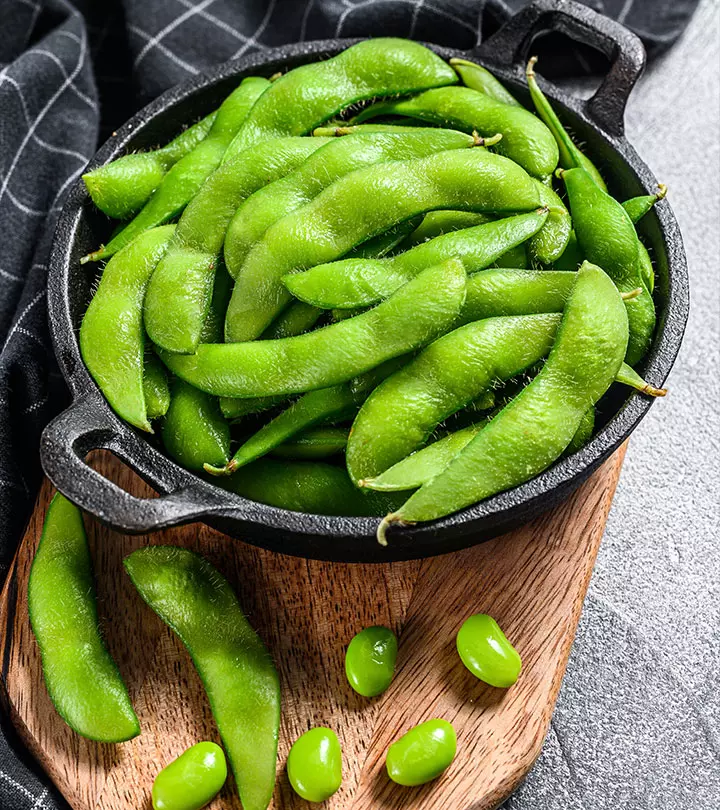
Community Experiences
Join the conversation and become a part of our empowering community! Share your stories, experiences, and insights to connect with other beauty, lifestyle, and health enthusiasts.